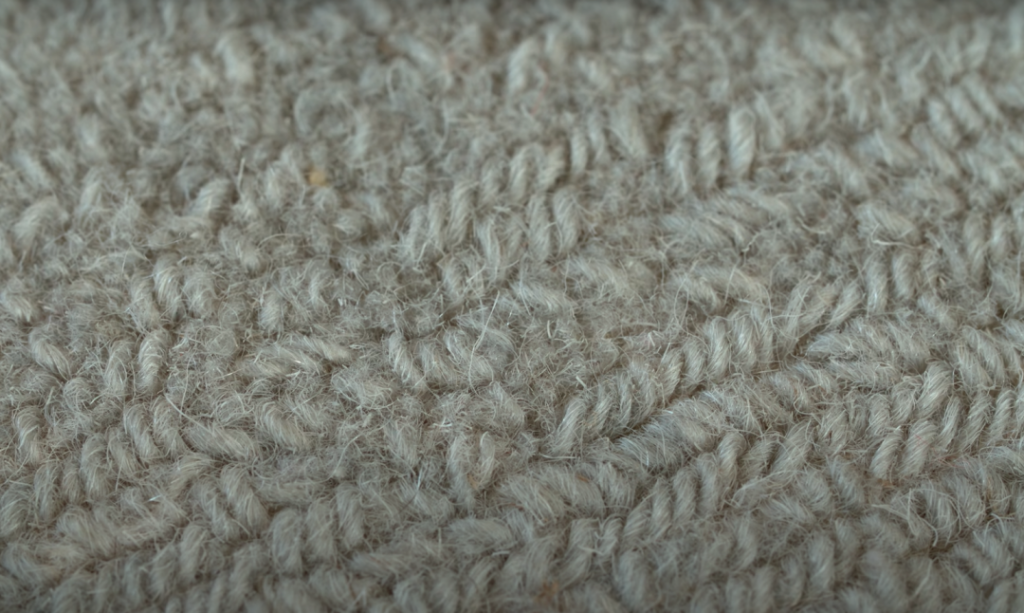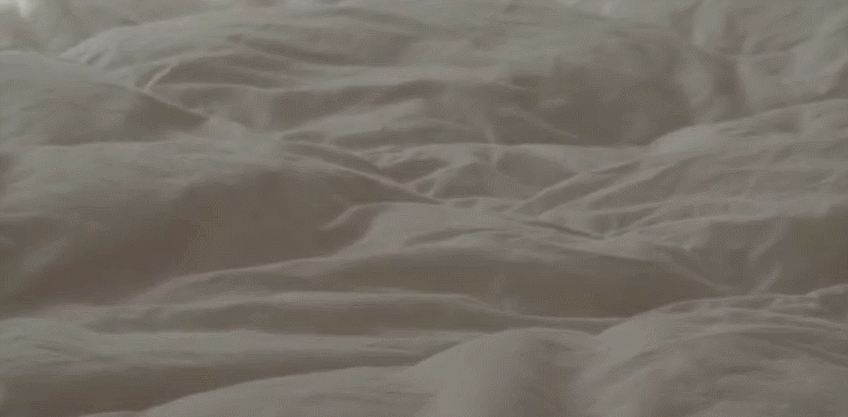
How often should you change your bed sheets?
To investigate this little problem, we consulted with dermatologists and looked at a lot of data, and came to a surprising conclusion.
To be honest, after reading this, I bet you will change your sheets frequently.
How dirty is the bed you sleep in every day?
This is the result of vacuuming the bed of a person who slept for a week.

What’s in this blob? Scientists from the Netherlands have analyzed this “dust”.

Most of these are various fibers, such as cotton fibers, paper scraps, synthetic fibers, etc. in the bed and the surrounding environment, these things are everywhere and there is no need to worry.
The other part is more surprising, they are a considerable number of human drops. Dander, hair, grease and sweat stuck to the bed, and more.
Next, let’s do a good calculation, how much can we save on the bed after a night’s sleep?
The first is dandruff. Scientists have made estimates by having subjects wear a special little cup that collects and weighs dander after a day of activity.
The results of the experiment were astonishing. In just one day, humans drop 500 million cells, an average of 20 million per hour. This means that if we count 8 hours in bed, 160 million cells will settle in your sheets in one night alone.
(Just, it’s so many creatures!)
Then there is the hair. The average person loses about 70 to 100 strands of hair every day, and we count it as 20 to 30 strands during bedtime.
And the yellow stuff we see on paper towels when we wipe our sweat — sebum. About 10g can be produced in one night.
in conclusion! After a night (sleeping naked), in addition to the sleepy you, there will be 160 million more cell corpses, 20-30 hair strands, 10g of oil, and salt stains after sweat evaporates.

If you don’t sleep alone, then we need to multiply the number of people sleeping in the same bed, the number of days without washing the sheets, and leave a little space for the hair of cats and dogs in the house…
Are you anxious to change the sheets right now?
Pause! Although there is really a microbial world on the sheets, considering that most of these come from ourselves, even if it is changed every year, it is difficult to say what harm it will really bring to the body.
But whether it’s a microbiologist, a dermatologist, or an organization like the American Sleep Foundation, it’s still recommended that you replace it every 1-2 weeks if possible. If there is more than one person at home, or a family with pets, try to do this as often as possible.
what about this?
Dirty is not a problem
Small things fed from dirty sheets are the problem
The dandruff, sebum, hair, and fibers we shake off the bed are indeed harmless to our bodies.
But if you really have been sleeping on sheets that have not been changed for a long time…
This warm, humid and chaotic environment can bring a lot of annoying troubles to people. Such as skin allergies, bed bugs, etc.
The things we drop may also become the source of life for another kind of small things – dust mites.
First of all, for non-allergic people, dust mites are actually not a problem, and there is no need to worry too much.
But for people with allergies, not washing the sheets frequently is equivalent to raising a gu in the bed and putting yourself in a dangerous environment full of allergens.
According to epidemiological surveys, mites in human settlements have become major allergens. In a retrospective analysis of 2390 patients with allergic rhinitis, the positive rates of dust mites and house dust mites were 47.2%-73.8% and 39.7%-55.4%, respectively.
And this allergy, sneezing little thing likes the most suitable temperature (20 ~ 25 ℃) + humid environment (70% ~ 75% humidity) + rich food (feeding of human dead skin).
It’s no exaggeration to say that the longer you go without changing your sheets, the better your bed’s dust mites will be fed.
The research team from the California Academy of Sciences used a vacuum cleaner to oversample household dust, and under a high-powered magnifying glass, they saw this amazing discovery.
The carpet in your eyes.

Actual carpet.

This little thing about 0.2 mm long is secretly hidden by our side.
Therefore, it is really not recommended to be too lazy about bed sheets.
According to the recommendations of the National Sleep Foundation, the ideal frequency is to change it every week, if possible.
If you take a bath every day, don’t sleep naked, don’t let smelly socks go to bed, don’t have pets, don’t sweat when you sleep… It doesn’t matter if you change the frequency less frequently, after all, we still have a strong skin barrier!
If you are too lazy to change it every Monday, or if you can’t encounter the sun or something, you can at least lift the quilt every morning (yes, you don’t need to fold it), and try to make the bed airy and dry.
Comments